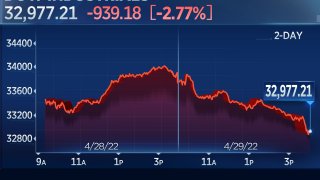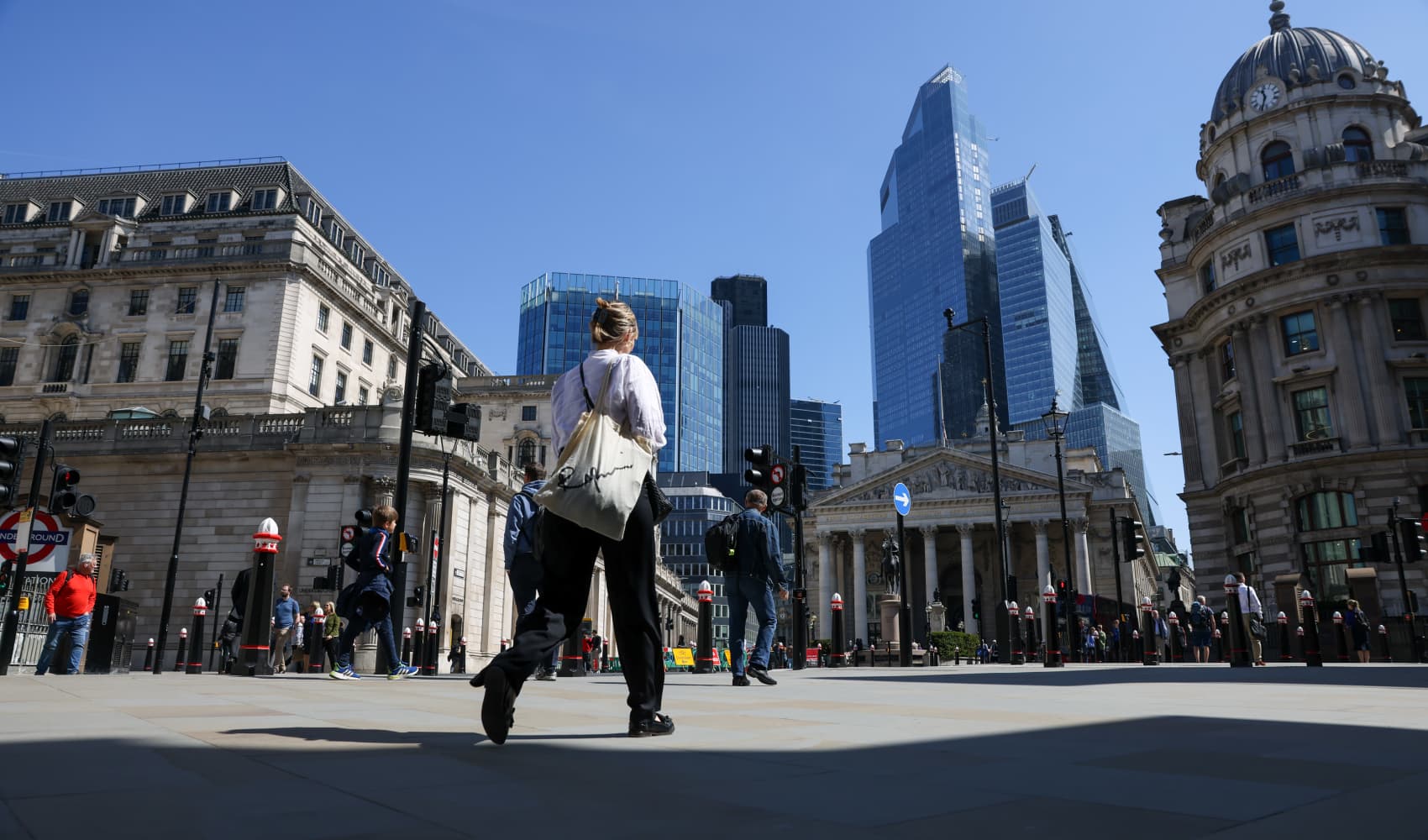
U.S. stocks sunk Friday with the Nasdaq Composite notching its worst month since 2008, as Amazon became the latest victim in April's technology-led sell-off.
The tech-heavy Nasdaq Composite fell nearly 4.2% to 12,334.64, weighed down by Amazon's post-earnings plunge. The S&P 500 retreated by 3.6% to 4,131.93. The Dow Jones Industrial Average shed 939.18 points, or close to 2.8%, to 32,977.21.
The Nasdaq finished at a new low for 2022 and the S&P 500 did as well, with the main stock benchmark taking out its previous low in March.
Stocks closed out a dismal month as investors contended with a slew of headwinds, from the Federal Reserve's monetary tightening, rising rates, persistent inflation, Covid case spikes in China and the ongoing war in Ukraine.
"The markets are trying to wrap around a lot of different cross-currents," BMO Wealth Management's Yung-Yu Ma said. "With the Fed raising rates and all the uncertainties that the global economy is facing, it's hard to get excited about paying the multiples that currently prevail in a lot of places in the market."
The Nasdaq fell about 13.3% in April, its worst monthly performance since October 2008 in the throngs of the financial crisis. The S&P 500 lost 8.8%, its worst month since March 2020 at the onset of the Covid pandemic. The Dow was down 4.9% on the month.
Money Report
Technology stocks have been the epicenter of the April sell-off as high interest rates hurt valuations, and supply chain issues stemming from Covid and the war in Ukraine disrupt business.
Amazon on Friday sunk about 14% — its biggest drop since 2006 — after the e-commerce giant reported a surprise loss and issued weak revenue guidance for the second quarter.
Feeling out of the loop? We'll catch you up on the Chicago news you need to know. Sign up for the weekly Chicago Catch-Up newsletter here.
"The current market performance is threatening to make a transition from a longish and painful 'correction' to something more troubling," Marketfield Asset Management Chairman Michael Shaoul wrote.
"March 2020 for instance saw very sharp declines, but equally fast recoveries. The current episode looks much more likely to impose long lasting losses in investors that piled in during the 2021 rally, and is best thought of a 'creeping bear market,' that is steadily widening its net over prior market leadership," Shaoul added.
The Nasdaq Composite sits in bear market territory, 23.9% below its intraday high. The S&P 500 is off its record by 14.3%, and the Dow is 10.8% lower.
Friday wrapped up one of the busiest weeks for the first-quarter earnings season and a particularly intense one for tech companies, which drove investor sentiment throughout the week.
Apple shares fell about 3.7% after management said supply chain constraints could hinder fiscal third-quarter revenue.
Intel fell 6.9% after the company issued weak guidance for its fiscal second quarter.
About 80% of S&P 500 companies have beat quarterly earnings expectations, with roughly half of the index's members having reported results so far, according to FactSet.
"Despite what we view as a solid overall earnings period so far, the positive results look to be getting overshadowed by some of the broader concerns related to inflation and the Fed," BMO's Brian Belski said in a note to clients.
A hot inflation reading Friday underscored the difficult environment. The core personal consumption expenditures price index — the Fed's preferred inflation gauge — rose 5.2% from a year ago.
Next week, investors are awaiting the Fed's policy meeting, the April jobs report and a flurry of corporate earnings from the likes of Pfizer, Starbucks, Uber and more.
The S&P 500 is now down 13.3% in 2022. The Nasdaq is off by about 21.2%, and the Dow is nearly 9.3% lower on the year.






